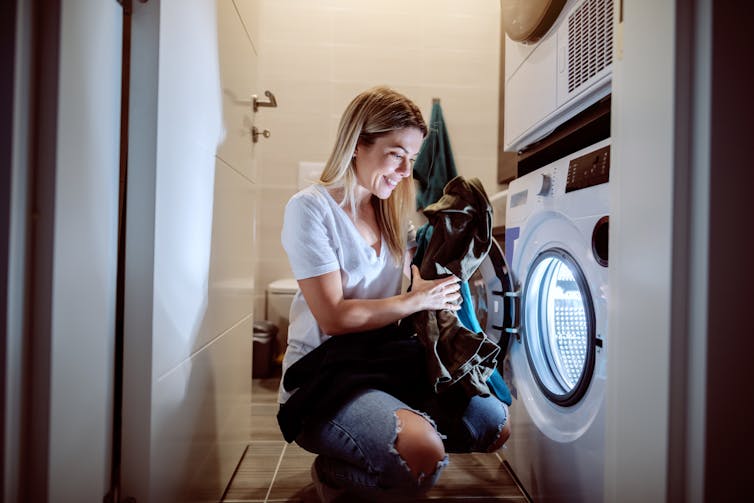
As temperatures drop over the winter period and the cost of energy rises across the UK and Europe, how to spend less money on gas and electricity is on everyone’s minds.
The UK energy regulator Ofgem reports that an average two- to three-person household in the UK consumes eight kilowatt hours (kWh) of electricity and 33kWh of gas daily. This equates to around 2,900kWh of electricity and 12,000kWh of gas a year. For comparison, an electric oven in your house uses 2kWh for 30 minutes of use.
With the rising cost of living, even the smallest tweaks and changes will help you save money. And by following these somewhat unusual energy-saving tips, you will not only cut costs but will also help to conserve resources for future generations.
1. Vacuum your fridge
Keeping your fridge clean and organised can help save energy in two ways. First, by cleaning the coils, you can keep your fridge running more efficiently, which will reduce the amount of energy it uses.
Second, while fridges work more efficiently when full, it’s important not to overcrowd them, as enabling cool air to circulate will keep the temperature at an optimal level. This will prevent the cooling system from having to work harder to keep the food cold, thus saving energy.
2. Get more from your kettle
Removing limescale from your kettle can also help save energy as limescale can cause the kettle to take longer to heat up, using more energy. But be aware that if your appliances are getting on in age, it may be better to replace them with more energy-efficient upgrades which can save even more money in the long run.
Using a thermos flask for any leftover kettle water is an excellent money saving tip. Not only does it mean that any excess water you’ve just boiled doesn’t go to waste, but it also means you’ve got boiling water when you need it without having to reboil the kettle again.

3. Heat one room efficiently
Heating only specific areas that you use the most can be beneficial in many ways. Limiting the areas that need to be heated, perhaps using a smart thermostat with multiple zone setting, can help you avoid wasting energy to heat the entire house.
Read more: How to stay warm when you're working from home (without turning the heating on)
By heating only the areas you need, you are also putting less strain on your heating, ventilation, or air conditioning system. This can help to reduce the wear and tear on your system and help it last longer. And limiting the amount of air that needs to be heated reduces the amount of dust and other contaminants.
You might also want to think about rearranging your furniture to make sure that your radiators have enough space to breathe. Leaving a gap between any furniture or curtains lets the air circulate properly, which means your are heating your room in the most efficient way possible.

4. Consider going off-peak
Some energy suppliers offer cheaper tariffs if you run your appliances during off-peak times when fewer people are demanding energy supplies – and this can save you money.
Your washing machine, dishwasher and tumble dryer are often the highest energy using appliances. In the UK, for example, avoiding using them during the peak hours of between 4pm and 9pm will not only result in lower electricity costs if you have an off-peak tariff. It will also reduce strain on the electricity grid and cut the need for additional energy production at peak times, which can reduce emissions from power plants.

5. Unplug devices, close doors and do the washing up
Focusing on your own behaviour matters the most when it comes to energy conservation. You should make sure to put on layers of clothes so that you can be comfortable without having to crank up the thermostat.
Also be more conscious of turning off unwanted lights, closing the doors when leaving a room to conserve the heat and unplugging devices that are not being used.
For small loads of dirty dishes, you should wash them by hand in a small amount of water rather than running a dishwasher half empty. Use pan lids when cooking to reduce the amount of energy used.
These are all small but positive actions that can reduce wasteful energy use, save money and help conserve the environment.
Sankar Sivarajah does not work for, consult, own shares in or receive funding from any company or organisation that would benefit from this article, and has disclosed no relevant affiliations beyond their academic appointment.
This article was originally published on The Conversation. Read the original article.







